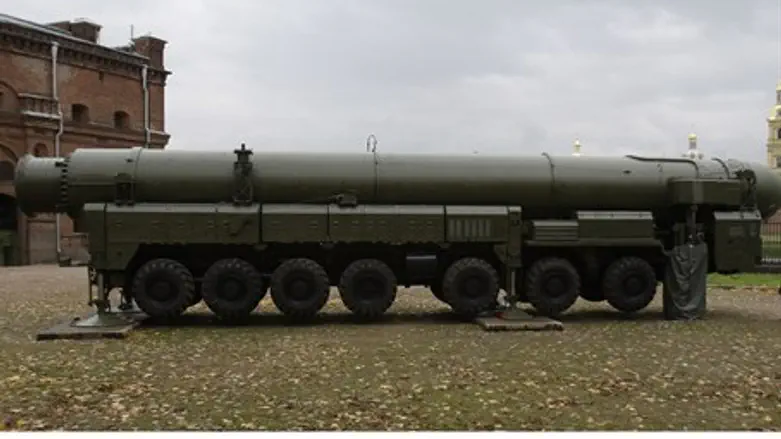
America apparently has reason to worry; after China earlier this month conducted successful tests on a new hypersonic vehicle able to dodge missile defenses and deliver a nuclear strike, Russia just recently conducted a test of its own on a similar hypersonic attack vehicle.
Russia has been developing the new Yu-71 vehicle for several years and has been keeping the project under tight wraps. Just this month Jane's Intelligence Review revealed the scope of the covert program, as reported by the Washington Free Beacon on Thursday.
The most recent flight test of the strike vehicle was held in February, when a prototype of it was released from a SS-19 missile launched from the Dombarovsky missile base in eastern Russia. While the test reportedly concluded unsuccessfully it shows the supreme importance the project - entitled Project 4202 - holds for the Russians, according to the report.
Project 4202 has been ramped up in the last five years to beat US missile defenses; hypersonic vehicles like China's new Wu-14 that is also in development can reach an estimated speed of ten times the speed of sound, or about 7,680 miles per hour, and are highly maneuverable, thereby thwarting American missile defenses which are based on a fixed trajectory.
The Jane's report indicates Russia will be able to produce up to 24 nuclear-capable Yu-71s by 2020 to 2025, emphasizing that "Russia appears to be considering the option of deploying its hypersonic system in a nuclear, as well as conventional, configuration."
Pavel Podvig, a co-author of the Jane's report, warned that the new vehicle could "seriously damage arms control efforts."
That statement comes on the heels of a new study from the Washington-based Center for Strategic and International Studies (CSIS), which warned that unless the US changes its policy and modernizes its nuclear arsenal it will lose its deterrence ability and lead to global nuclear proliferation - and that Russia and China will grow into key threats with their rapidly advancing nuclear programs.
Regarding the new Russian hypersonic vehicle test, a Pentagon spokeswoman declined to provide the Washington Free Beacon with a comment.
Former Pentagon official Mark Schneider, who closely tracks Russian strategic weapons programs, told the paper that the Chinese hypersonic program has the edge on Russia, noting, "both are reportedly nuclear-oriented and the Chinese program seems more successful."
"The Russian program was clearly described as strategic in nature," said Schneider. "The Obama administration talks about the Chinese threat, but very little about the Russian threat, so our only sources of information are the Russian press."
The US also has a hypersonic missile under development as part of its Prompt Global Strike program, although that program will feature conventional instead of nuclear weapons and aims to be able to precisely hit targets anywhere on earth within minutes.